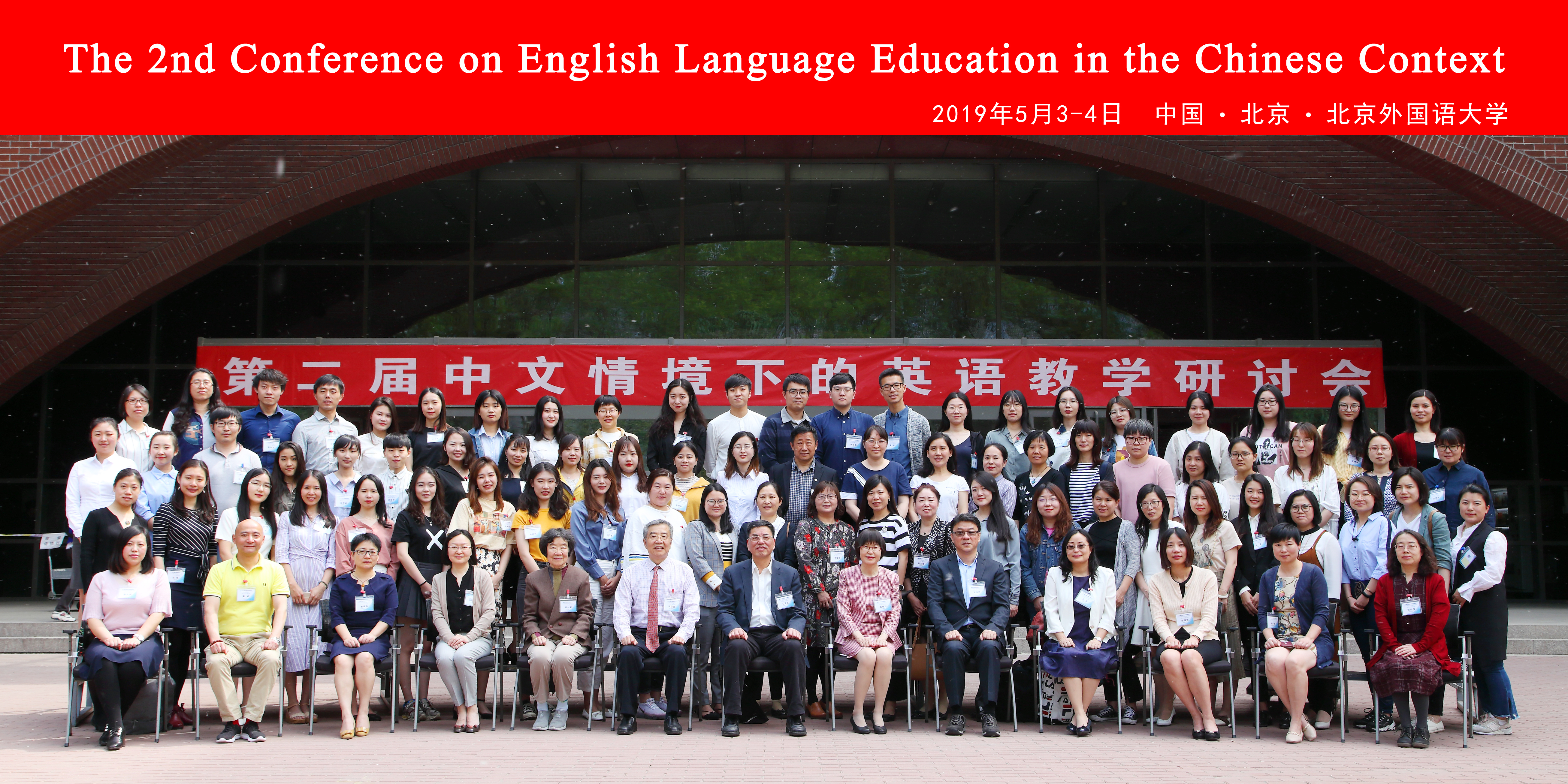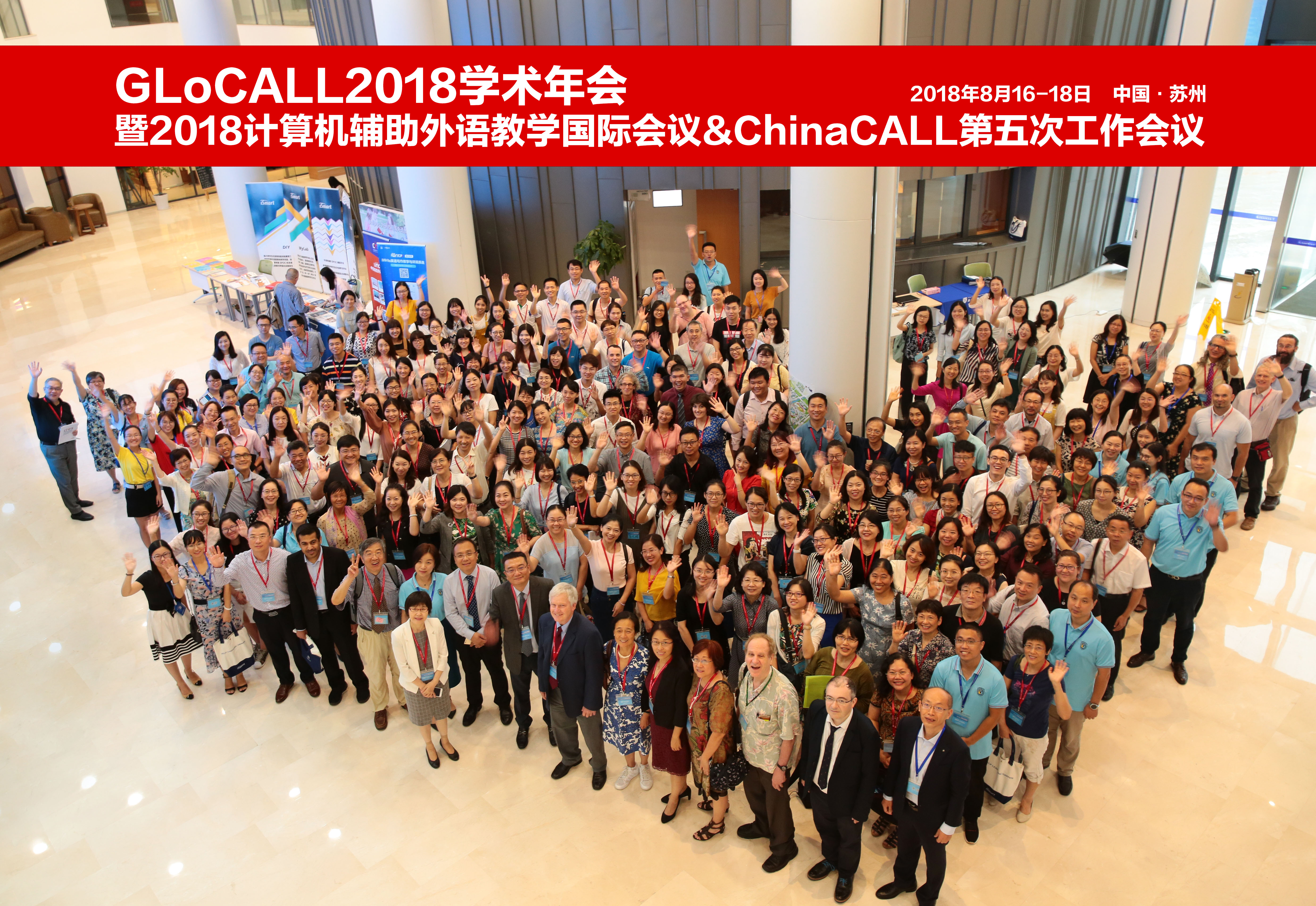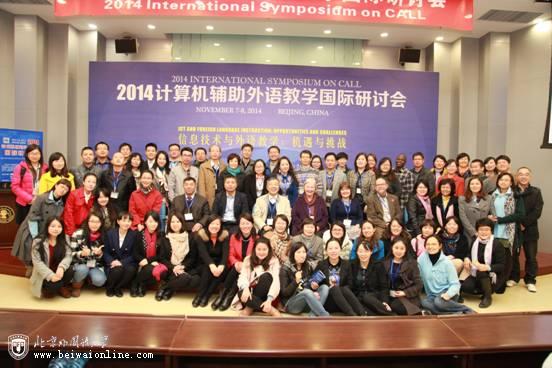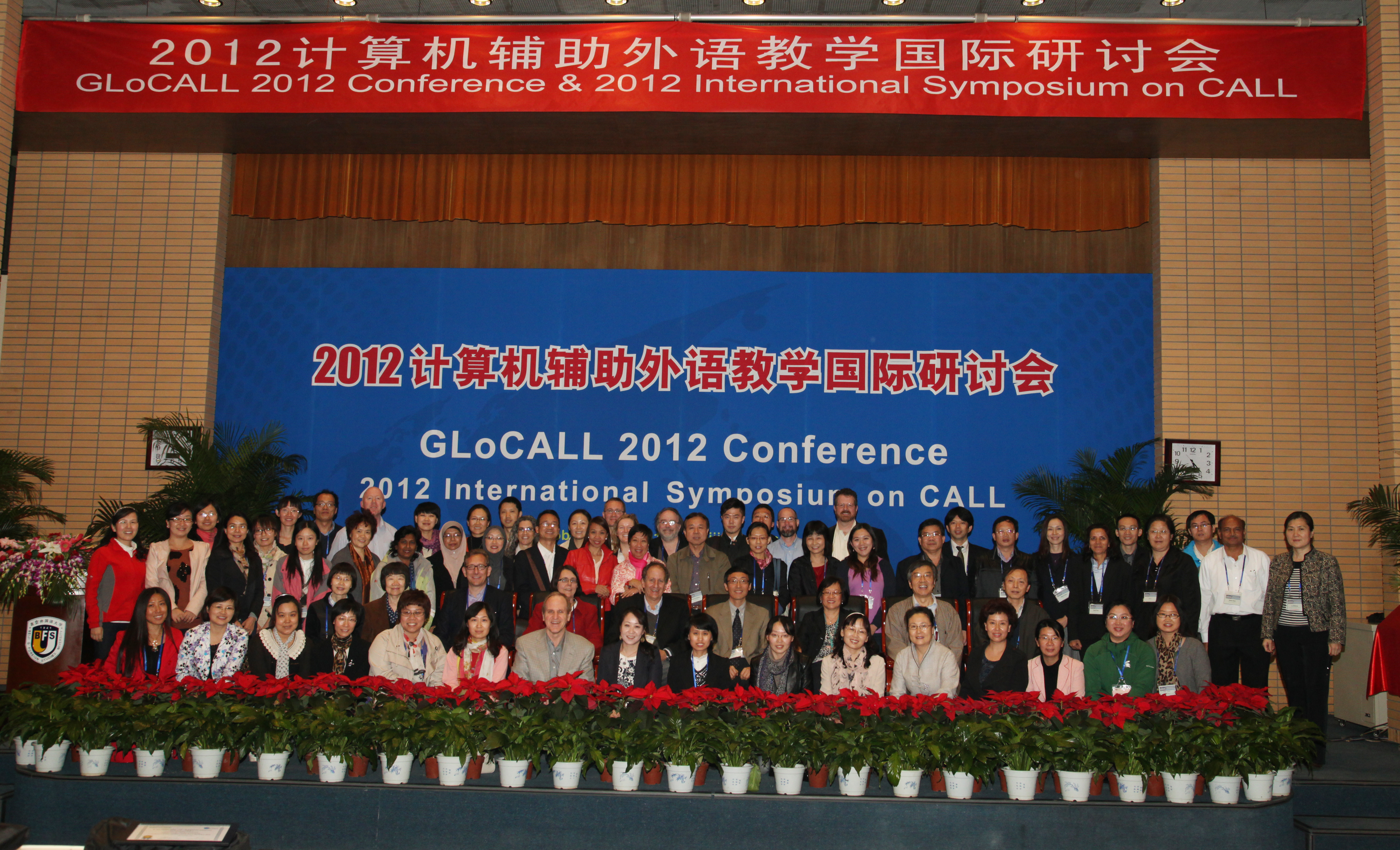Public Notices
ChinaCALL Conferences
Hosted by:

Keynote speakers:
-

1. Yueguo Gu
Prof. Yueguo Gu is the Chief Scientist of Artificial Intelligence and Human Languages Lab, Beijing Foreign Studies University. He is also the President of China Association for Computer-Assisted Language Learning (ChinaCALL), the founding Dean of the Institute of Online Education and Guest Professor of the University of Nottingham. His research areas include pragmatics, discourse analysis, corpus linguistics, rhetoric, the philosophy of language, and online education.
【Speech Title】
A Post-20 Year Look into the Future
【Abstract】
The Institute of Beiwai Online Education (IBOE) was officially endorsed as a second batch of higher institutions piloting online education in China. 20 years have gone by. What have we learned from this piloting phase of practising online education? As the IBOE founding dean, I am privileged as well as obliged to reflect upon the eventful years to see if there have been achievements, if any, and regrets — personally quite a few. My optimistic personality motivates a focus this paper places on the IBOE future. What will IBOE look like in another 20 years, that is, when it reaches the year 2040? There will, to be sure, many unpredictables that lay on its way. The question I put to myself is: What will I be able to contribute to its future development, that is, if I can live that long? My present thinking is this: I’ll work on institutional knowledge ontology and management which, being the core of AI conceived by its founding pioneers, provides a key to its future success.
-

2. Bill Rivers
Dr. Bill Rivers is the Principal of WP Rivers & Associates, a consulting firm in the language industry. He served for 8 years as the Executive Director of the Joint National Committee for Languages, in Washington, DC. He has more than 30 years’ experience in culture and language for economic development and national security, with publications in second and third language acquisition research, proficiency assessment, program evaluation, and language policy development and advocacy. He is the immediate past and founding Chair of ASTM Technical Committee F43, Language Services and Products and chairs the U.S. Technical Advisory Group to ISO Technical Committee 232, Education and Learning Services. He serves as a member of the America’s Languages Working Group of the American Academy of Arts and Sciences, and is an honorary member of the Association of Language Companies. He received the PhD in Russian from Bryn Mawr College and the MA and BA in Russian and the BS (Aerospace Engineering) from the University of Maryland. He speaks Russian and French.
【Speech Title】
The Role of AI in Language Learning
【Abstract】
Can Artificial Intelligence Improve Language Learning? While language teaching has always been an early adopter of technology – witness the use of LP records in the 1950s, and the extensive adoption of language labs in universities – the revolution in personal device computing, coupled with significant advances in neural network modeling, creates a new set of affordances for language learning and teaching, namely, the potential application of Artificial Intelligence to language learning. At the same time, clear trends in the role of AI and education overall point to significant potential limitations for AI and language learning (Klein, 2019). While receptive skills - reading and listening - have seen tremendous advances in the use of computer assisted language applications, especially on mobile devices (Golonka et al., 2014), interactive skills lag far behind. However, AI has shown promise in the development of personalized tutors (Goren et al., 2016; Suvorov) and adaptive testing for language learning. This presentation discusses recent trends of AI in the context of the revolution of blended learning for languages. more>>
-

3. Agnes Kukulska-Hulme
Agnes Kukulska-Hulme is Professor of Learning Technology and Communication in the Institute of Educational Technology at The Open University, UK, where she leads the Future Learning Programme. Her expertise spans online distance education, mobile learning and language learning. Professor Kukulska-Hulme is on Editorial Boards of several journals including ReCALL, System, RPTEL, and International Journal of Mobile and Blended Learning. She has been a Visiting Scholar in several countries and an invited speaker at over 100 international conferences and events. Her publications include reports for UNESCO, British Council, Commonwealth of Learning, International Research Foundation for English Language Education, and Cambridge University Press.
【Speech Title】
Smart Mobile Assistance in Language Learning
【Abstract】
Learning a second or foreign language is a challenging endeavour which requires various degrees of support. Alongside existing resources and tools such as mobile apps, the emergence of smart technologies including chatbots and conversational agents has the potential to assist language learners wherever they may be. However, whilst a growing number of researchers and developers are working on such intelligent assistants across different disciplines, little is known about their application in language learning. The concept of ‘smart mobile assistance’ seeks to draw together the ways in which such intelligent tools on mobile, wearable and portable devices can provide instantaneous or ongoing support to language learners inside or outside the classroom. Smart assistants might answer questions, support study habits and extend opportunities for language learning and language practice. It is argued that they can support beneficial approaches including self-directed and reflective learning. The keynote will map out this emerging territory, consider some findings from recently analysed research literature, and highlight implications for educators wishing to embrace such developments in their teaching practice.
-
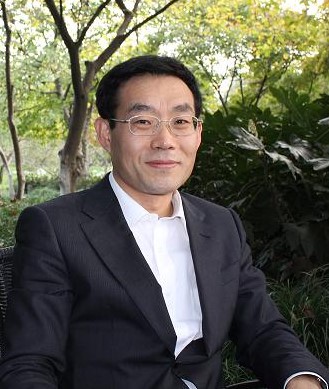
4. Fengchun Miao
Dr. Fengchun Miao is the Chief of the Unit for Technology and Artificial Intelligence in Education at UNESCO, Education Sector, Headquarters in Paris. He is leading programmes in areas of ICT in education policy development, AI and education, digital skills development for teachers and students, Open Educational Resources (OER), mobile learning, and future e-schools. He is also in charge of UNESCO Prize for the Use of ICTs in Education. Highlights of his achievements include the launch and continuous organization of Mobile Learning Week for 9 years, the development and adoption of Qingdao Declaration on leveraging ICT to achieve SDG 4 and Beijing Consensus on AI and Education. He brings with his experiences of supporting more than 60 countries directly for the development of national ICT in education policies and OER policies. Before joining UNESCO, Dr. Miao was the Director-General of the National Research Centre for Computer Education, Ministry of Education, China. In that capacity, he was responsible for the development of national ICT in education policies and ICT curriculum standards for students, and managing the National Association for the Use of ICT in K-12 Schools of China.
【Speech Title】
Artificial Intelligence and Education: What Teachers Need to Know
【Abstract】
I. A framework on interplays between AI and education
A. How to ensure ethical, inclusive & equitable use of AI in education?
B. How can education prepare humans to live and work with AI?
C. How can AI be leveraged to enhance or reinvent education?
II. A matrix to analyse emerging issues relating to AI and education based on three key layers Digital World (Data + Algorithm + Computing); Interface (Apps + Devices); Education, Teaching, and Learning (Use Cases)
III. An outline of AI in education use cases
For each of the following use cases, examples are provided followed by a fundamental question relating to the topic.
1) the use of big data, AI tools to advance inclusive and equitable access to education or digital opportunities
Can Al help level the playing field of accessing to learning resources and digital opportunities?
2) the use of big data, data collection and processing technology to upgrade the EMIS
How can data across platforms and social media be drawn to inform policy planning and decision making in education?
3) the use of AI to recognize learning patterns and enable personalized high-quality learning
Can algorithms precisely diagnose personal learning problems and provide precise solutions?
4) the use of AI for subject-specific or interdisciplinary learning
Can algorithms precisely diagnose personal learning problems and provide precise solutions?
5) the use of AI for innovative or new forms of learning
Will the AI-driven future of learning be an evolution inside-out of education systems?
6) the use of AI for development of creativity and/or critical thinking
How far can AI go to stimulate humans’ creativity in art areas and in solving real problems?
7) human-machine dual teacher models to empower teachers
Teachers are irreplaceable in developing humans’ personal capital. How will teachers’ competencies be redefined and developed for the AI era?
8) AI-powered lifelong learning companions
Can AI help recognize with less bias learning outcomes obtained from varied lifelong and life-wide learning settings? more>> -

5. Carolyn Rosé
Dr. Carolyn Rosé is a Professor of Language Technologies and Human-Computer Interaction at Carnegie Mellon University. She is Past President and Inaugural Fellow of the International Society of the Learning Sciences and Co-Editor-in-Chief of the International Journal of Computer-Supported Collaborative Learning. Her research program is focused on better understanding the social and pragmatic nature of conversation, and using this understanding to build computational systems that can improve the efficacy of conversation between people, and between people and computers. Her group’s highly interdisciplinary work, published in over 250 peer reviewed publications, is represented in the top venues of 5 fields which include Language Technologies, Learning Sciences, Cognitive Science, Educational Technology, and Human-Computer Interaction.
【Speech Title】
Supporting Learning During Collaborative Work: From Text Based Chat to a Smart Office Space
【Abstract】
Building on over a decade of AI-enabled collaborative learning experiences in the classroom and online, this talk report on classroom studies in large online software courses with substantial teamwork components. Project courses are believed to be valuable experiences for students to engage in reflection on concepts while applying them in practice. In our classroom work, we have adapted an industry standard team practice referred to as Mob Programming into a paradigm called Online Mob Programming (OMP) for the purpose of encouraging teams to reflect on concepts and share work in the midst of their project experience. At the core of this work are process mining technologies that enable real time monitoring and just-in-time support for learning during productive work. This work builds on a foundation in text-based interaction, and transitions into multi-modal support for collaborative learning in face-to-face collaboration.


